This week Governor Sisolak signed into law the legislature redrawing the district lines for the four existing congressional districts, the existing 21 senate districts, and the existing 42 assembly districts. Senate Bill 1 passed on a mostly partisan split earlier in the week. Redistricting is an every 10-year process in which the census data is used to determine population shifts in each of the districts.
Assemblyman Edgar Flores (D-Las Vegas) was the only democrat to join republicans in opposing the bill. The maps very well could make it easier for democrats to win two of the congressional seats that have sometimes flipped to republican in the past decade. The maps are also expected to potentially make it easier for democrats to win supermajorities in both legislative chambers.
There is potential danger in a supermajority by one party. I recently moved to Fallon from Oregon and am a recently retired State Representative from the Oregon Legislature, the equivalent of the Nevada Assembly. In September, we held our first in the nation, redistricting special session. The Oregon Legislature currently has a supermajority of democrats in both the house and the senate. This greatly affected how Oregon’s redistricting process worked.
In the regular 2021 session, House Republicans in an effort to stop what we considered “bad bills” followed the Oregon Constitutional requirement to “read the bill in its entirety.” Traditionally, only the summary was read by the clerk before debating and voting on a bill. By not waiving that, the bills were then read in full which in some cases took up to 3 days to complete.
Our caucus made a deal with the House Speaker to give us equal representation on the upcoming Redistricting Committee. When the September Special Session on Redistricting started, on its first day, the Speaker reneged on the deal and changed the makeup of the committee to be reflective of the supermajority. The maps that were then proposed were greatly gerrymandered to help the supermajority party gain at least one more congressional seat and secure enough seats in the house and senate to not only maintain supermajority but to gain a “quorum proof” majority.
The house republicans did not show up to grant quorum for a week to delay the maps but ultimately attended the session and after heated debate, the maps passed on mostly party-line vote with two house democrats joining all of the republicans in opposing the maps.
Because of this experience, I can assure you that having a supermajority of any party is not good for the State of Nevada. Balance is necessary to have good governance. Redistricting is one of the more obscure political processes that the vast majority of voters and nonvoters do not completely understand but it’s crucially important for all residents of the state. It determines federal funding to the state for the next decade and it determines the political outcomes for each district and its representation in the state legislature and the outcome of what party is in control of congress.
Nevada has finished this for now. Oregon is in the middle of several lawsuits challenging the maps that its legislature passed; the outcome is still to be determined.
Bill Post is a former Oregon State Legislator who is now a resident of Fallon, Nevada, and is a political consultant for Intisar Strategies in Oregon.



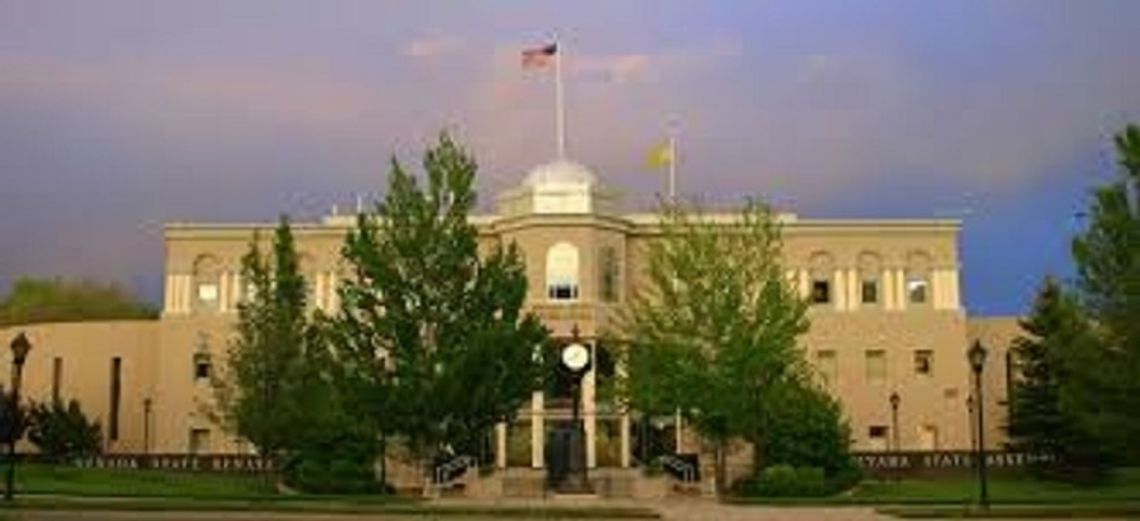
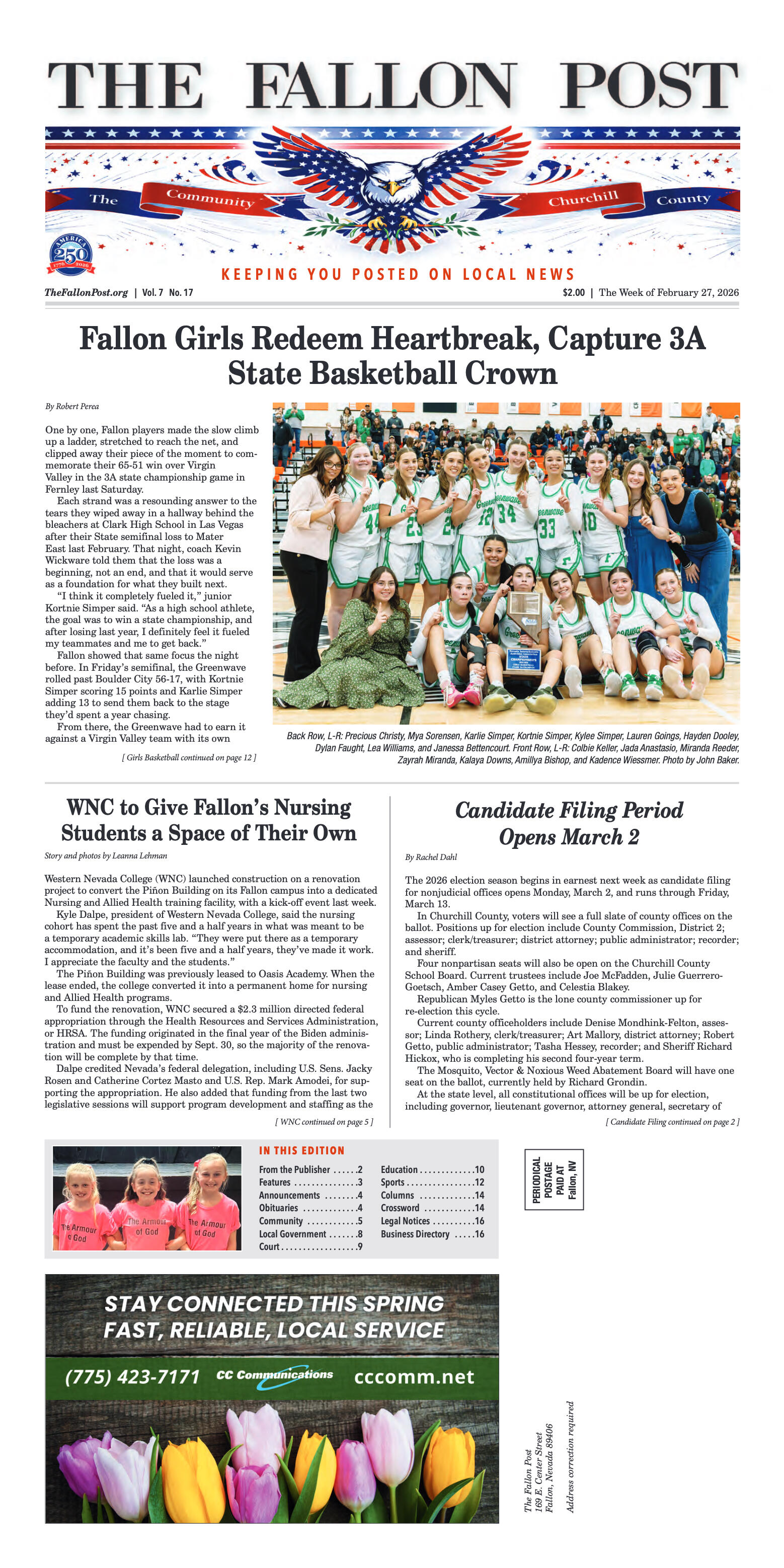

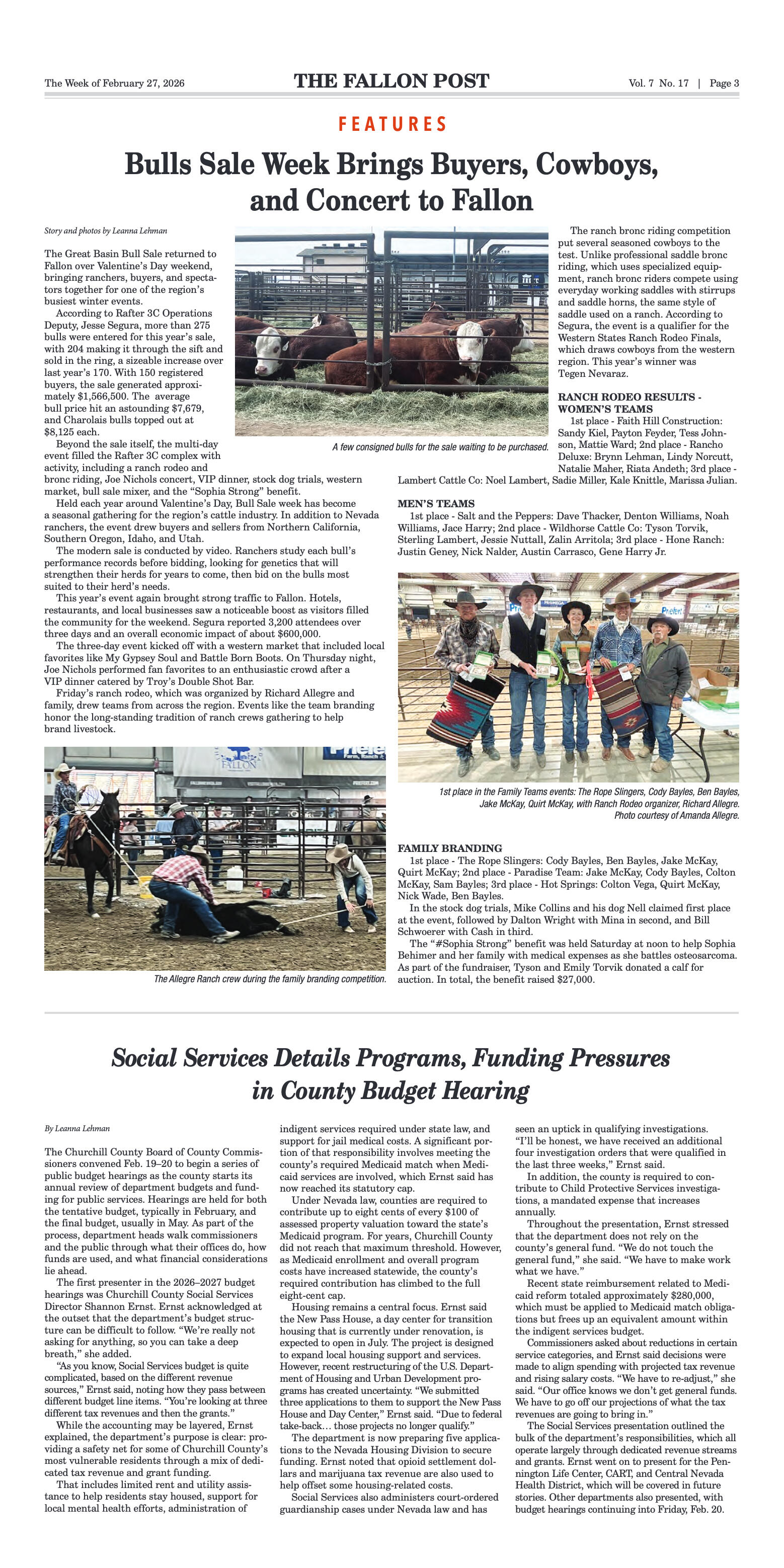
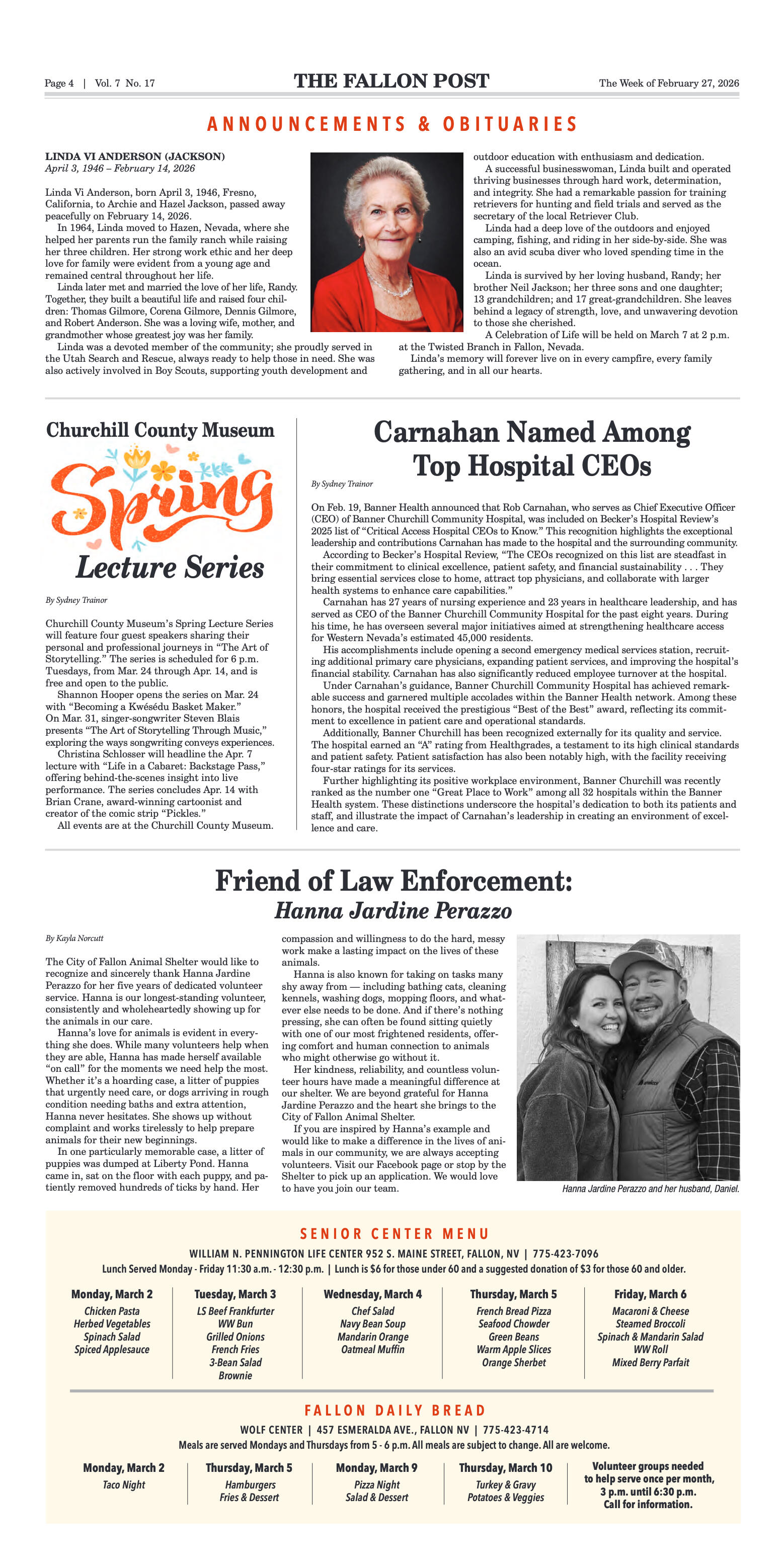
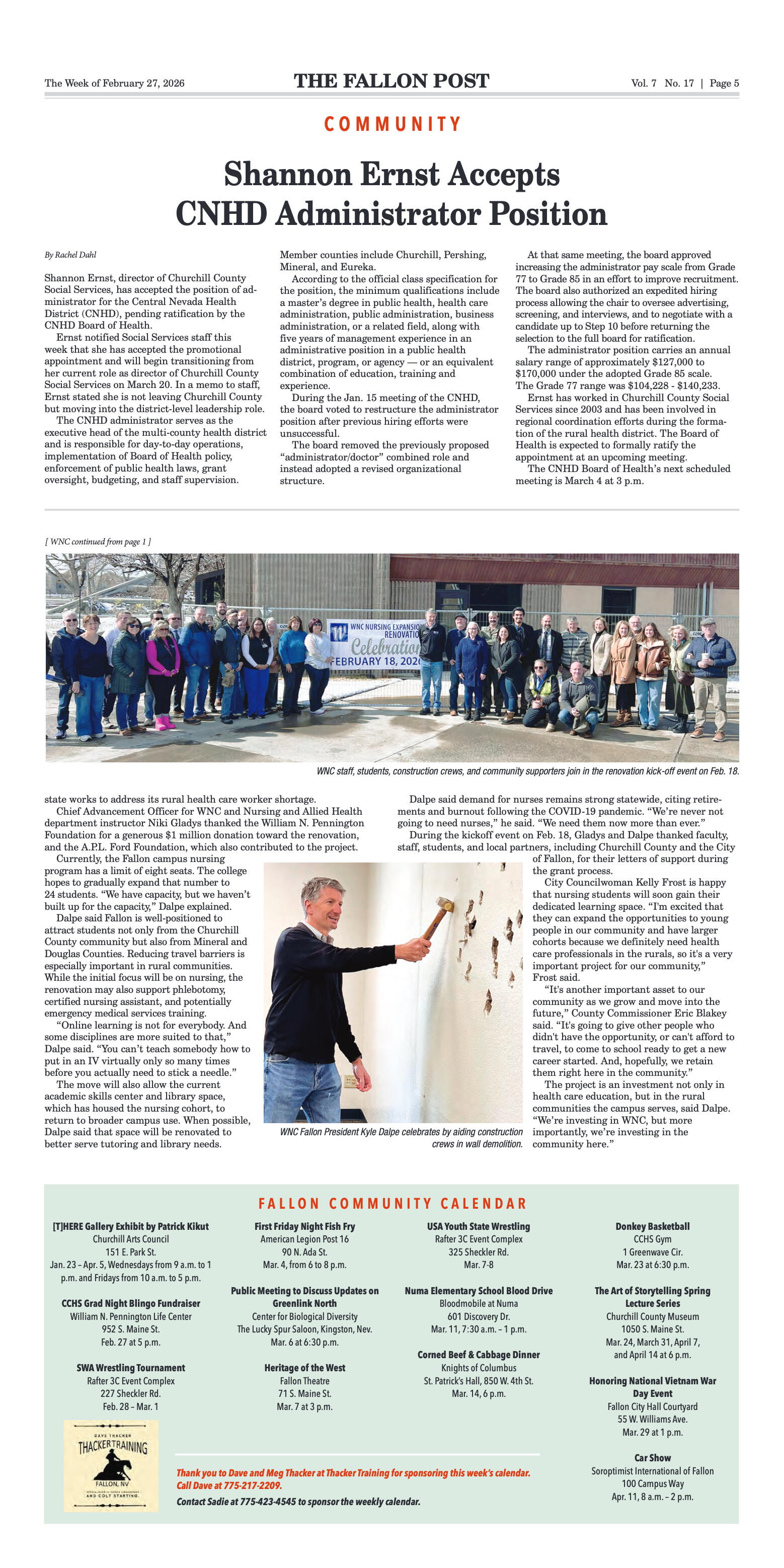
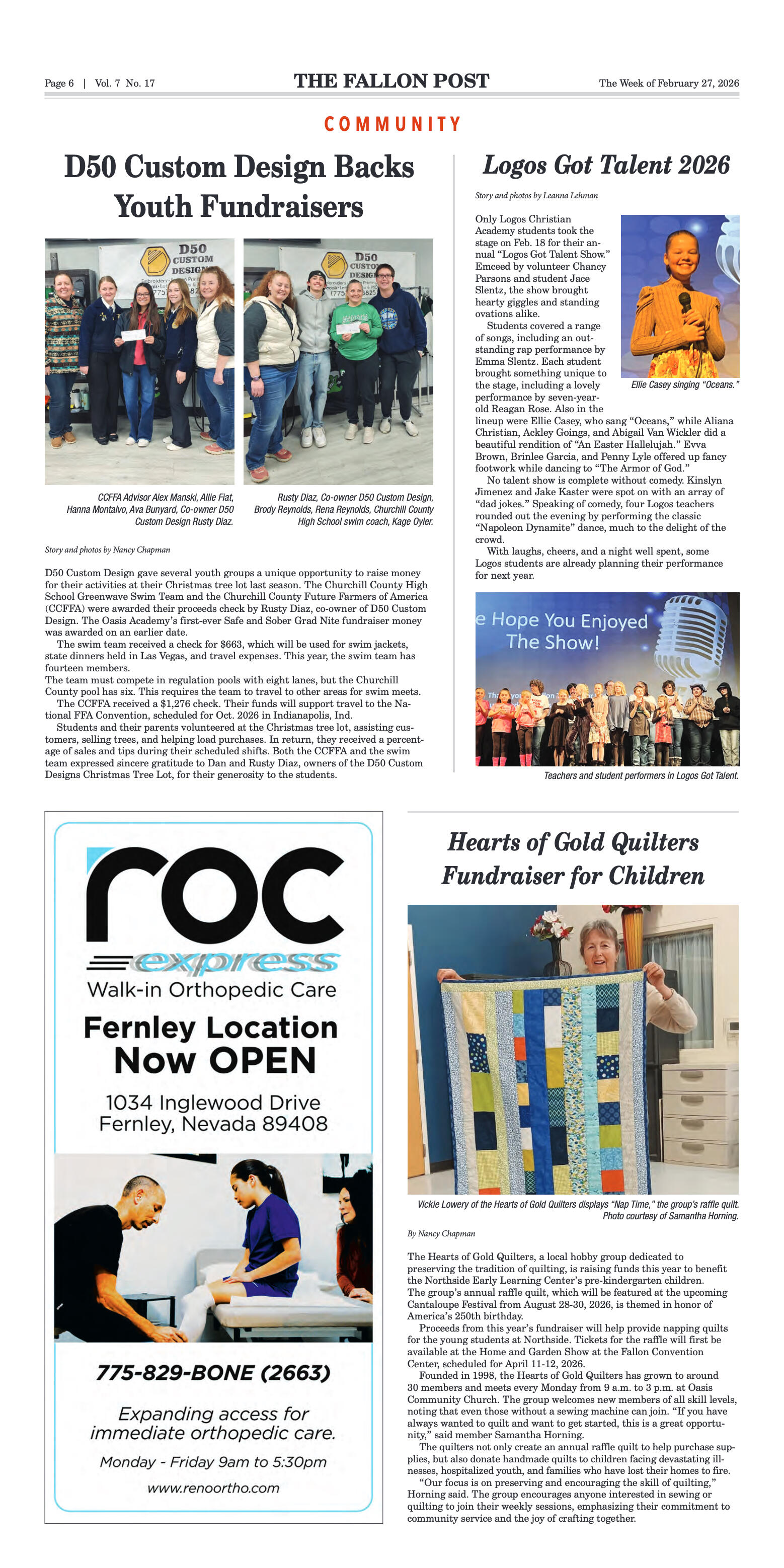
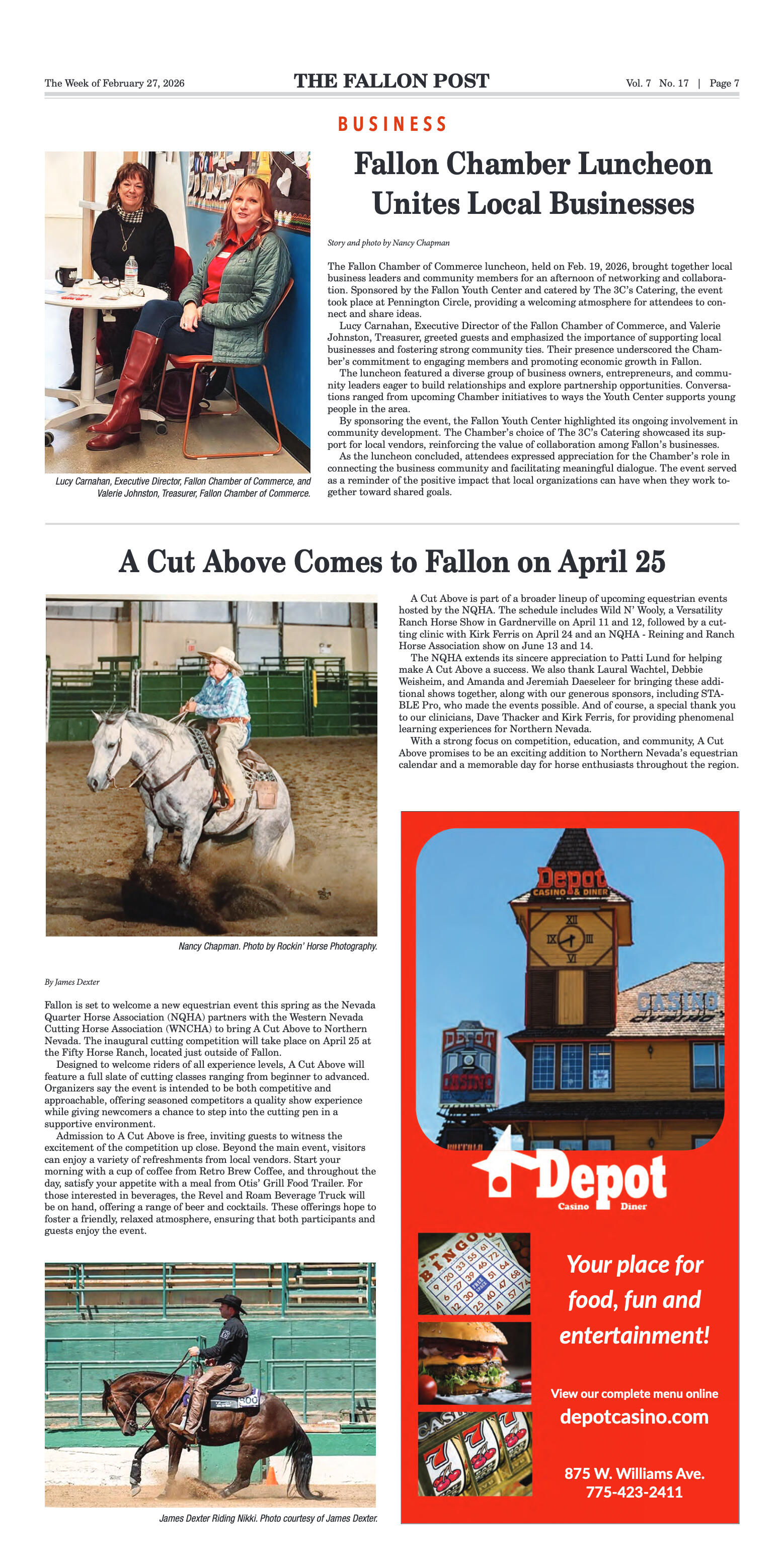
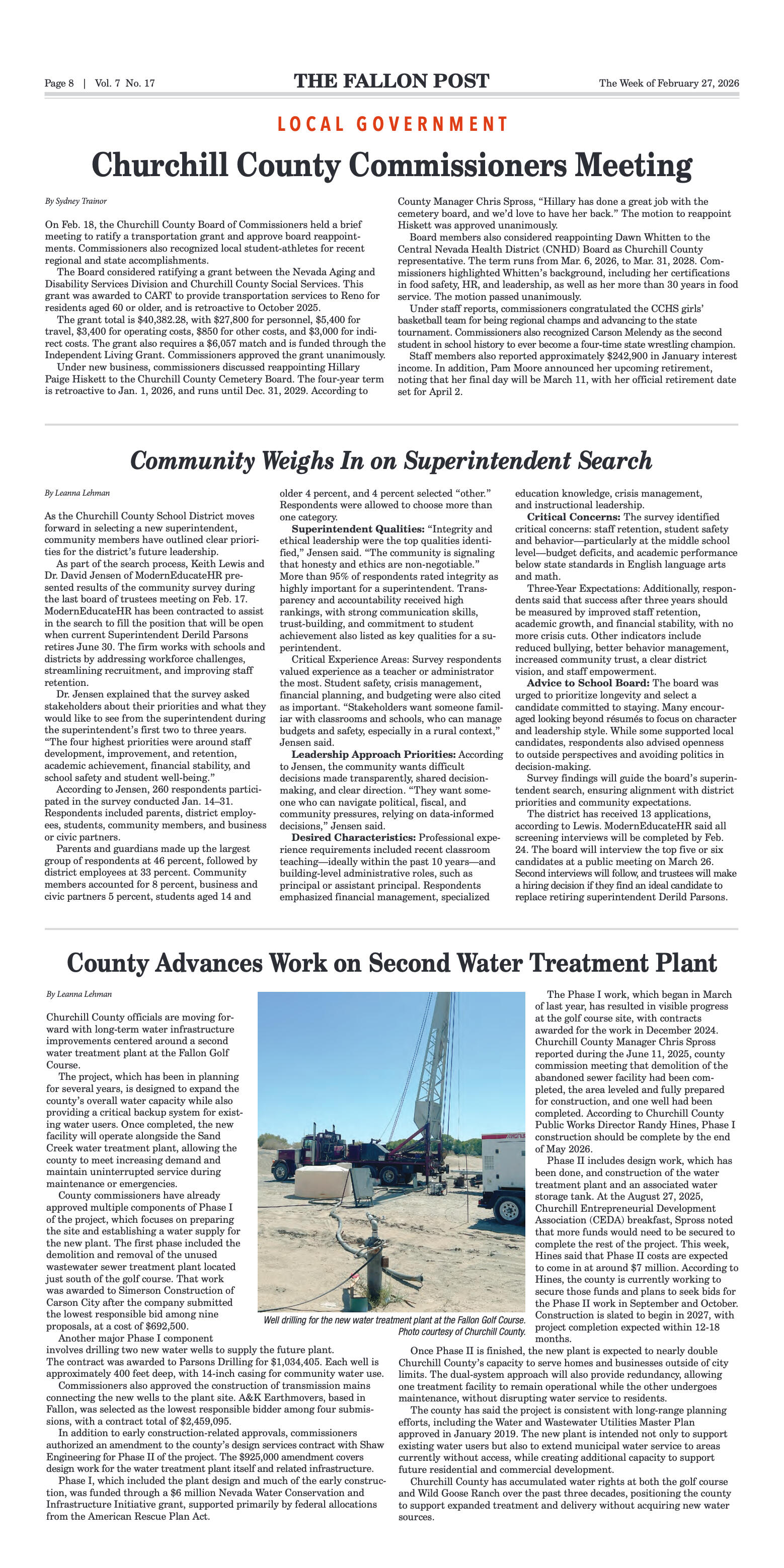
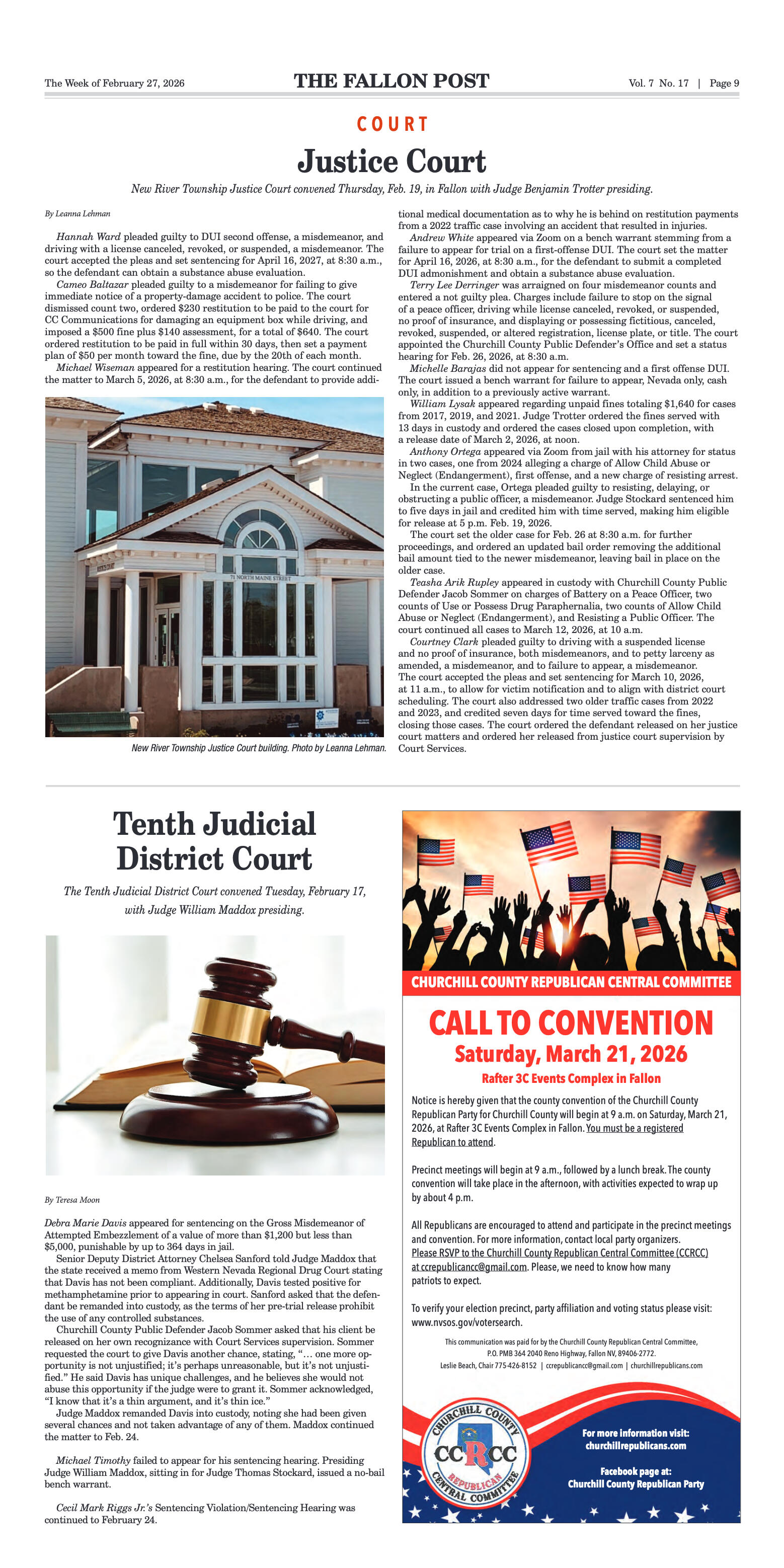
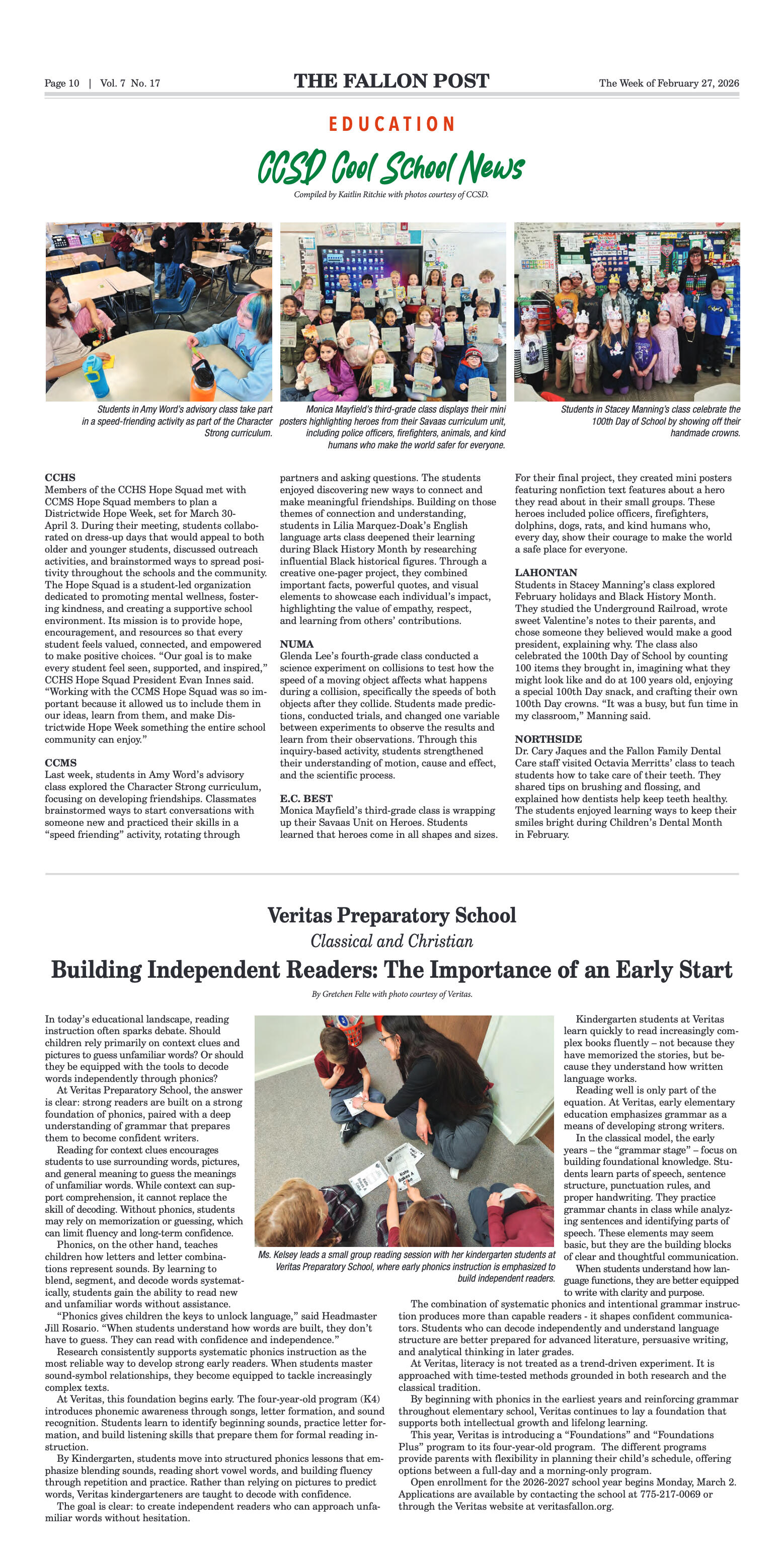
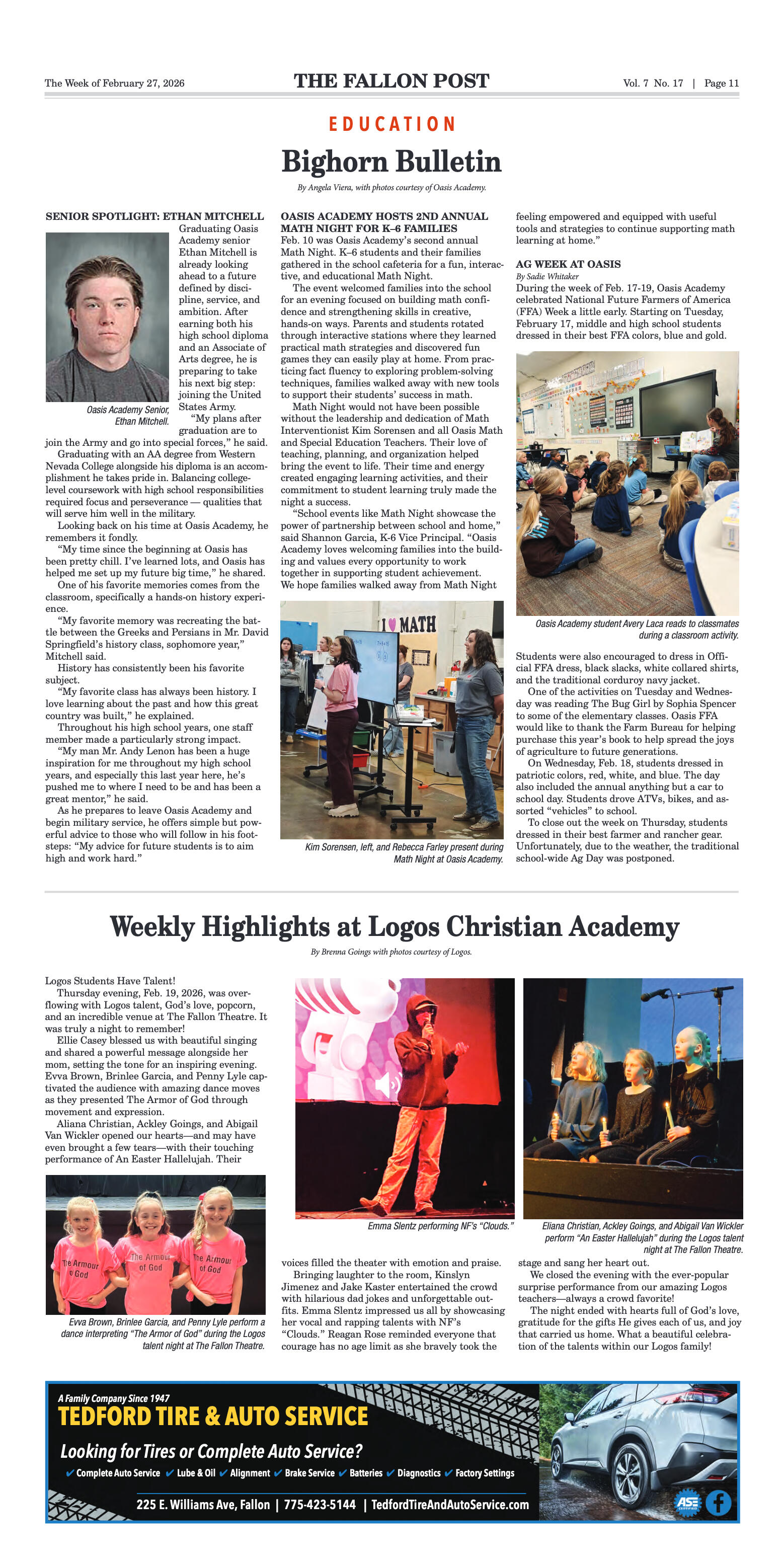
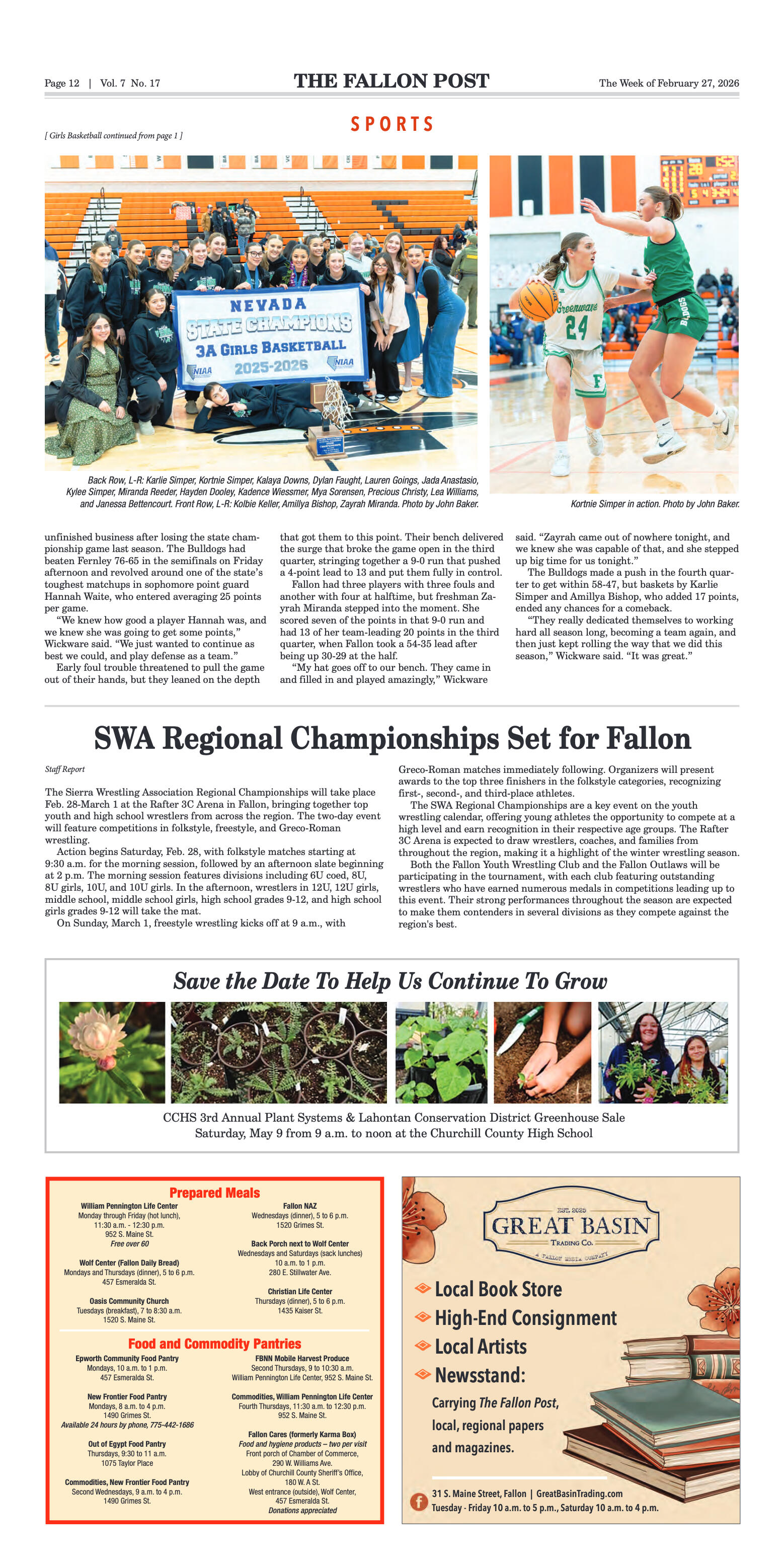


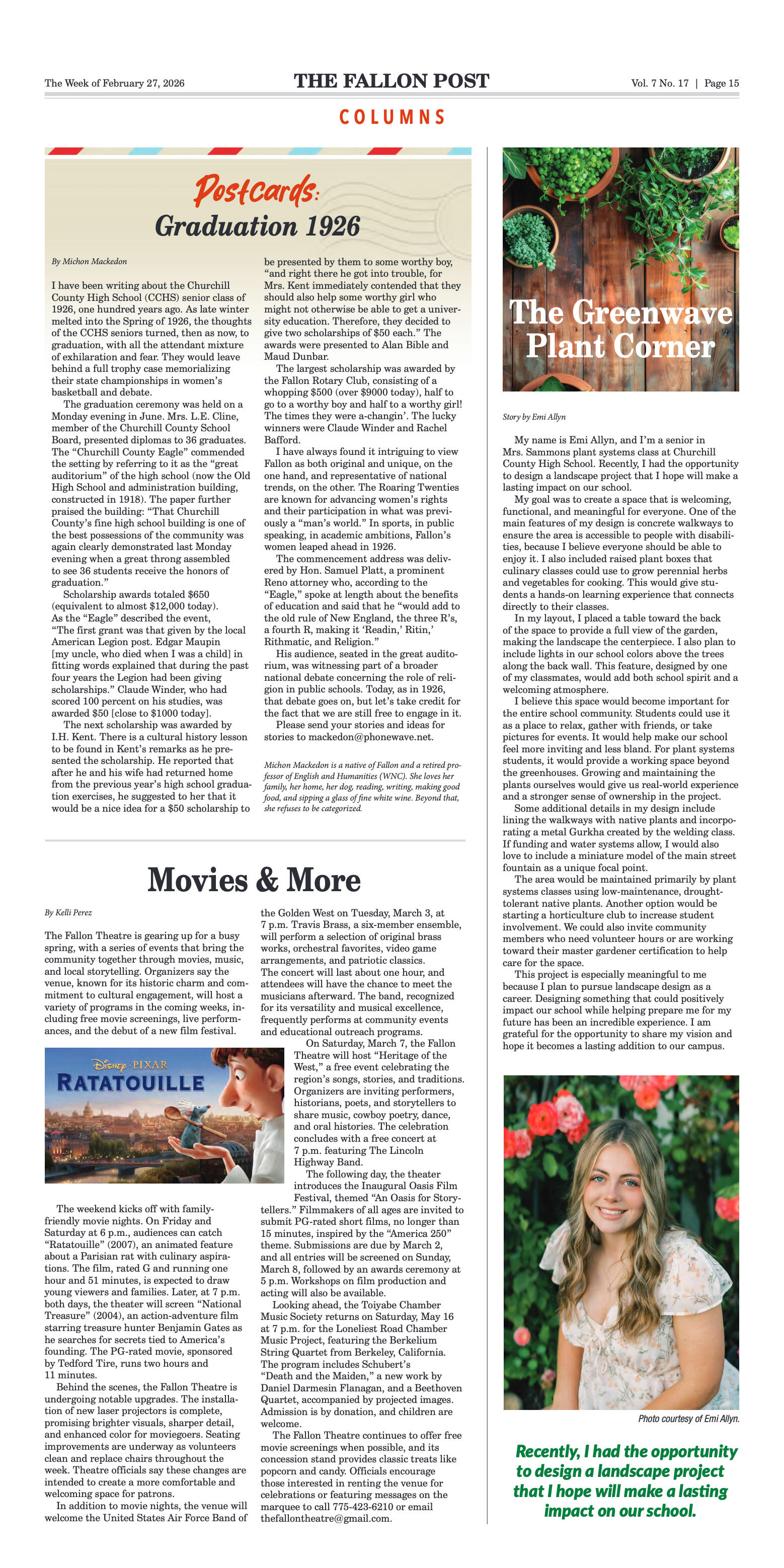
























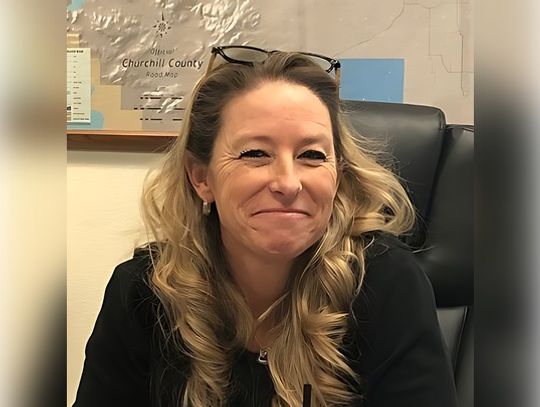


Comment
Comments